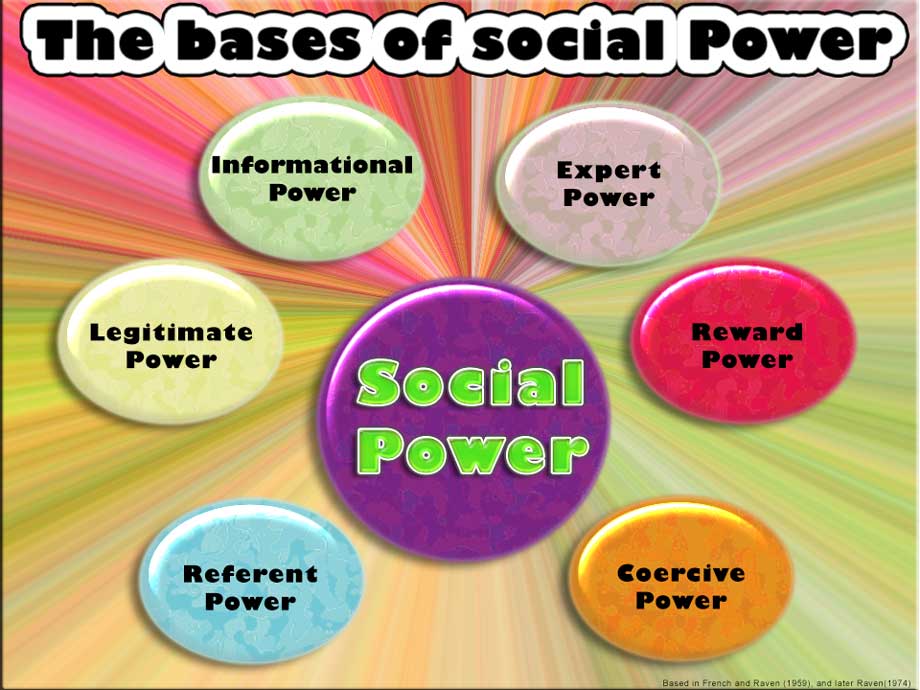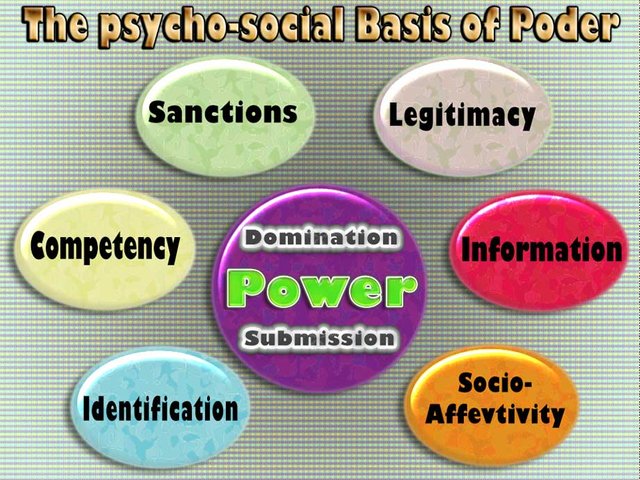The Nature of Power , Part III -The foundations Of Power
Social Reality: Violence, Power, and Change
The Nature of Power
Part III -The foundations Of Power
We can talk about Power in various dimensions like: Formal power (in organized systems) and informal (in groups of friends), Charismatic power (identification with what people wanted to be), Institutional power (power of institutions and state) and Street Power (charisma of gangs leaders with street power, or when the people manifest themselves against the establishment).
Power is an intricate web of Moral Systems of Belief that are associated with aggressive scripts of behavior, when the right triggers are present.
The darkest exercises of power make a mark with repression and oppression, destruction and coercion, imposition and forced cohesion, inequality, injustice, uniformity, and compliance, etc.
The famous Turing is an example of the coercion of institutions, that was murdered by making a deal with Power to cure his "disease" - homosexuality.
Let's now focus on the analysis of the Pillars of Power.
Robert A. Dahl in 1975 pointed out that power should be analyzed on its foundations, extensions, framework and technological costs.
He said Power in a person is measured by the volume of resources, and the quantity and "importance" the of people he/she controls, and his/her level of acceptance.
1 - The Basis of Power
Power in an analogy is the skeleton of a building that can't be seen after it is constructed, but it has a lot of influence in its solidity and consolidation.This model is based on French and Raven from 1957, that emphasized the basis of power in Rewards, Coercion, Legitimacy, Reference, and Expertise.

1.1 - Rewards
The central position of one person with underlying Power to reward others is a unidirectional influence that people accept by conformism.
1.2 - Coercion
Cohersion is the other side of the coin face of Rewards.
Sanctions are always the result of nonconformity to obey orders.
Normally, the consequences of sanctions have negative impacts, the opposite of rewards that are positive.
1.3 - Legitimacy
Influence is related to the position of a person in the pyramid of hierarchies, that defines the statutes that give rights to influence others and is a right that is connected with the capacity to reward or punish.
1.4 - Reference
A person can have Power when others imitate his/her behavior (as an example) in an identification process.
Power legitimacy is in cultural standards that accept social structure and the nominated elected to rule.
1.5 - Expertise
The Power of the expert is an influence based in one's information and knowledge, but is not based on control and is limited to his/her field of expertise.
1.6 - Conclusion
This model shows that all the more recent studies of the foundations of Power found out that its all interconnected but conceptually is very difficult to separate or to perceive the possible combinations.
Power "reaches into the very grain of individuals, touches their bodies and inserts itself into their actions and attitudes, their discourses, learning processes and everyday lives." - Michele Foucault>2 - The Psychosocial basis of Power

The psychosocial basis of Power was studied by Crozier and Friedberg in 1977, referencing the last presented model of French and Raven in part 1, and they present the four main Sources of Power:
- The first is the power of the Expert referring the aspects of problem-solving by the expert and the acceptance in the group of his/her conclusions.
- The second is the power to solve uncertainties generated in the interaction of organizations with the environment.
- The third Source of the power is the capacity of one person's intervention in communication and information exchange with others
- The fourth comes from a person's knowledge and capacity to use organizational rules to defend its own interests.
After the models analyzed in chapter 1 and 2, we are now going to analyze the concepts of means of sanction, information, competence, identification and socio-affective structure.
2.1 - Sanctions
Power is the possession one person has, of having a system of rewarding and punishment to the evaluation of other's people behaviors.
All Power is linked to types of the sanctions using rewards and punishment expressing the judgment of a central person that can use coercion or threats against other people's deviance from the expected behaviors.
Bachrrach and Lawler in 1980, make a distinction between Basis and Sources of Power:
For them, the basis of Power is coercion( creating negative feelings of people assuming conformity), payment (as a controlled reward), normative power( symbolic rewards like promotion), and competence(measured by information).
Besides the Basis, there are four Sources of Power, the position in the hierarchy (that determines the resources of power), personal factors, evaluation and opportunities (unpredictability and constraints of power).
For Crozier e Friedberg the sources of power in social actors are based on structural coercion like the evaluation of the expert, the possible actions the environment of the organization, the circulation of information that gives power based on access, and the in the organizational rules and norms of functioning.
2.2 - Information
Information can be an important source of power for anyone, like the politicians use their privileged access to information to influence and changes people's attitudes and behaviors, normally by self-interest.
2.3 - Competence
Our capacities and personal skills can be a strong source of power like the case of an expert that has education and specialized knowledge about a domain of reality.
2.4- Identification
The process of identification is the projection of our own desires in a person that is a role model for us.
Identification is based in forms of admiration, worship, deference, or love like a kind of human mutual attraction as a power of reference.
2.5 - Legitimacy
Legitimacy is a source of rationalization of power based in a social contract that defines who has the right to rule, facilitating the social system's stabilization in accordance to social conventions that are ideological and mistified maybe for eternity in social relationships.
2.6 - Socio-affective structure
Enriquez in 1983 studied the process of fusion where the controlled individual molds his behaviors in the dominators will, like a "love-fusion" that is very visible in charismatic leadership, that makes people totally dependent on being the leader.
We can see the hidden aspects of repression and this power strengthens the masochist tendencies of the dominated.
In the last three posts we have analysed the Nature of Power, in the first talking about the Notions of Power, in the second about the Dimensions of Power, followed by this one about the Foundations of Power.
The next post is about the Dynamics of Power, and to finish the cycle of Power with a last post about The Effects and Consequences of Power.
Note: Because the next article is very long, and because it includes one of my favorite topics in Leadership, it will require division into several sub-posts to be able to better explain these concepts.
Video
French and Raven's Bases of Power
Read the book "The concept of power" by Robert A. Dahl
Wikipedia French and Raven's bases of power
Last posts in this series on Social Reality: Violence, Power and Change
Introduction:
Social Reality: Violence, Power and Change A- Violence:
An Introduction to ViolenceThe Concepts of Violence, Aggression, and Aggressiveness
The Theories on Violence
The influencers of Violence -Part One - Culture and Social Context
The influencers of Violence -Part Two - Social , Cognitive and Environmental Factors
The ascend of Today's Violence
B- Power:
What is Power? - Introduction- this postThe Nature of Power
- Part I - The Notions of Power
- Part II -The Dimensions of Power
- Part III -The Foundations of Power - this post
Articles from the next series of posts about Social Reality, Violence, Power and Change:
The Dynamics of Power:- Part 1 - The Legitimacy of Authority
- Part 2 - The Models of Leadership
- Part 3 - Characteristics of Leadership
- Part 4 - The Relation in Leadership
- Part 5 - Decision-making and Leadership
C - Change:
Change and CultureThe Theories and conceptualization of Change
Factors determining Change
The ways of Change
Social Change
References consulted:
Les concepts fondamentaux de la psychologie sociale - Gustave-Nicolas FischerLa psychologie sociale - Gustave-Nicolas Fischer
The social-violence dynamics, Power, change - Gustave-Nicolas Fischer Planeta / ISPA, 1980
Gustave-Nicolas Fischer is Professor of Psychology and Director of the Psychology Laboratory at the University of Metz.
French, J. R. P., & Raven, B.H. (1959). The bases of social Power.
Raven, B. H. & Rubin, J. Z. (1976). Social psychology: People in groups
Castel, R. The metamorphoses of the social question. Voices, 1998.
Moscovici, S. (1976). Social influence and social change. London: Academic Press
Michel Foucault, Discipline and Punish: The Birth of the Prison
Festinger, L. (1954). A theory of social comparison processes.
French, J. R. P., Morrison, H. W., & Levinger, G. (1960). Coercive Power and forces affecting conformity
Dahl, R.A. (1957), The Concept of Power.
Giddens, Anthony, Capitalism and Modern Social Theory: An Analysis of the Writings of Marx, Durkheim and Max Weber, 1971.
Grabb, Edward G., Theories of Social Inequality: Classical and Contemporary Perspectives,1990.
Weber, Max, Economy and Society: An Outline of Interpretive Sociology, 1968.
You are talking about violence and injustice
I urge you to see my last article about the injustice that is happening in my country
Last Friday, Israel killed 17 young people and wounded 1120 youths
Do you know what Palestine means?
Violence, murder and displacement
Hi, thanks a lot for your pertinent comment of a living example of the atrocities and abuses of the Powerful that are nothing but little men with big guns in their hand.
I decided to develop this comment in your post that I recommend here. please check
"Power in an analogy is the skeleton of a building that can't be seen after it is constructed, but it has a lot of influence in its solidity and consolidation."
This is a really great explanation!
Humans are truly masters of complication. The more rules are being set the more perpetrators will be born. People often say: without rules the world would wreak havoc and mayhem. Yet this is not because of the absence of rules but a result of rules. The same goes for power.
Good read once again!
Thanks a lot my friend for your precious comments. :)
It took a 2 hours drive to find the analogy of the building, hehe.
Rules nowadays are used only in the point of view of their makers and friends.
Rules must be made by the communites and for the communities and not only for the rulers.
Finishing with a quote:
"If the State acts one way, that turns an alternative to Human Nature, than its less evil to destroy the State" - Benedictus de Spinoza